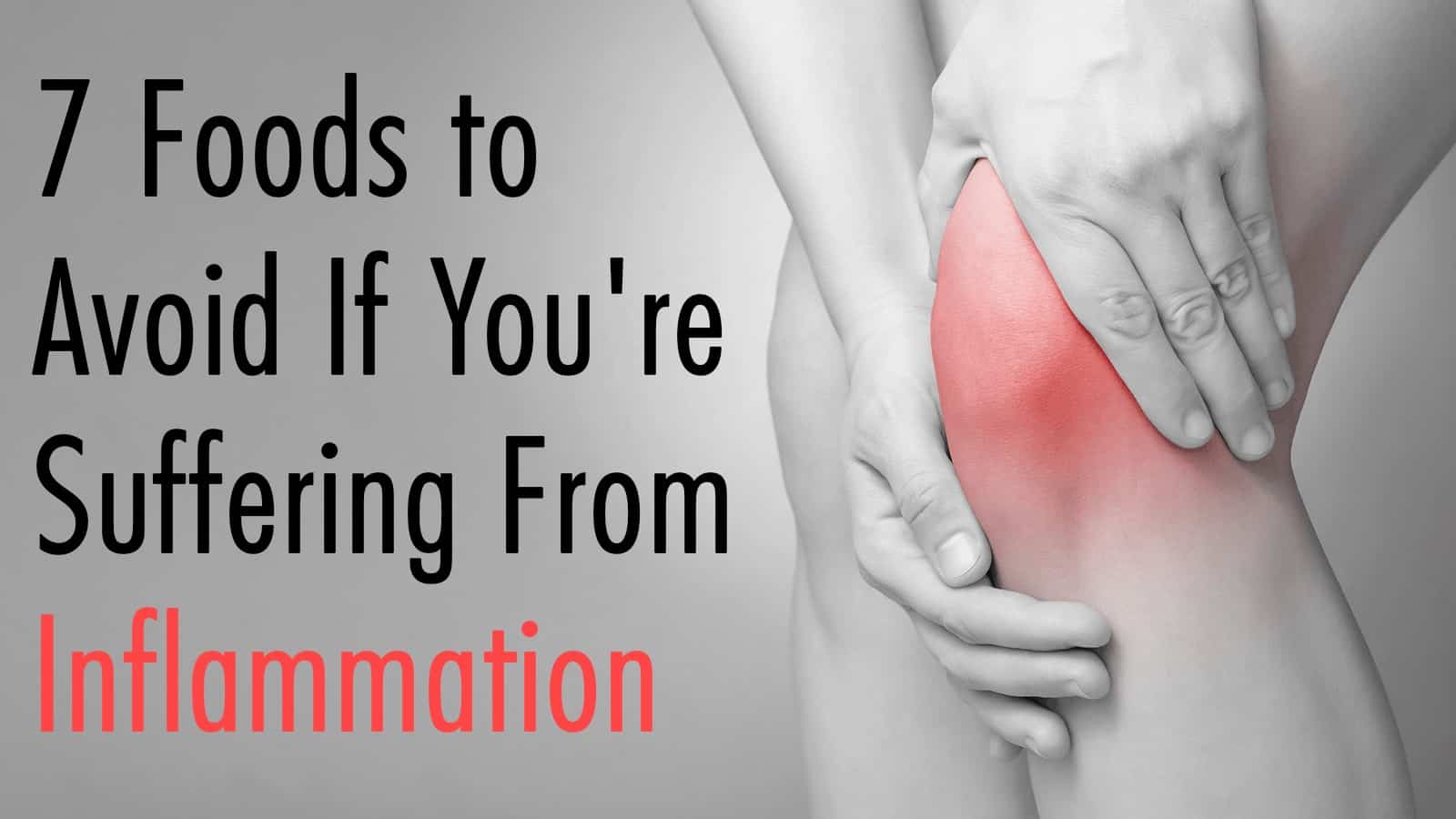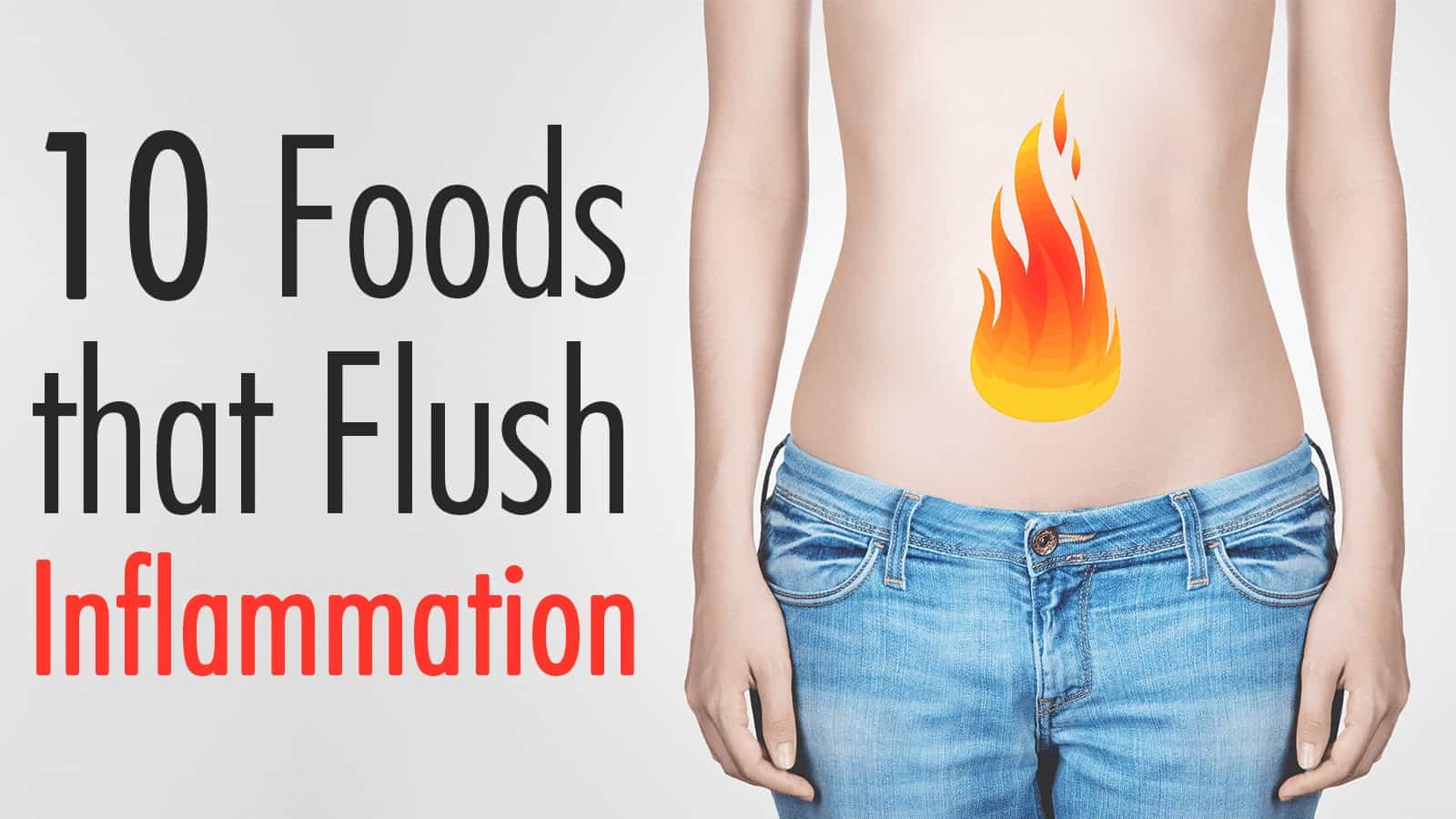A lot of the foods you enjoy eating have been salted, sweetened, processed, and refined in different ways. While this might help food taste better and last longer, it could also be the reason you’re suffering from inflammation constantly. Inflammation, which manifests as body pain or swelling, can limit your ability to physically function. And when your body isn’t in the best shape, you can’t also muster a positive outlook. You can, however, make a conscious choice of staying away from unhealthy foods to lessen those negative symptoms.
Here Are 7 Foods You Should Avoid If You’re Suffering from Inflammation
“Lower your body’s burden of toxic chemicals, and you’ll turn down the flame another notch.” – Dr. Kellyann Petrucci
1. Fried foods
Yummy fried chicken and French fries are easy to prepare. These food choices are also always on the menu at most restaurants and fast food chains, so you can have it anytime. Fried foods are also comfort foods for some, but surely, you’ve heard how many doctors and health experts say these aren’t healthy. Fried foods contain advanced glycation end products (AGEs) that trigger inflammation and accelerate the aging of the cells. Most fried foods are also cooked in trans fats (hydrogenated oils) like butter, lard, or palm oil that cause major inflammation.
A study from 2009 at the Mount Sinai School of Medicine proved that inflammation significantly decreased among a group of people who limited their intake of processed and fried foods for four months. They also experienced the restoration of their body’s immune system. If you can’t help eating fried foods, some experts suggest using healthy fat for frying these foods, such as peanut oil or olive oil. You might also want to switch to an air fryer instead of a deep fryer to cut down on the fat content.
2. White bread
Regular white bread contains refined carbohydrates and sugar. These are two food components that trigger inflammation. Our bodies apparently break down white bread faster than the whole-wheat variety, which sets off the blood sugar levels. This, then, causes an insulin spike that leads to inflammation.
If you like eating bread, experts recommend switching to the wheat and gluten-free kinds because these have no sugar and/or flour. These types of bread are also rich in fiber, which aids in your body’s digestion. In the same way, it’s also best to avoid pizza, tortillas, pretzels, pasta, and bagels made with refined flours.
3. Dairy
Milk might be good for the bones because it is rich in calcium. Yogurt, on the other hand, supposedly helps with inflammation because of its probiotic component. But milk and yogurt, as well as other dairy products like cream cheese and processed cheese, contain saturated fats that can cause inflammation. An excessive intake of these foods could worsen your swelling and pain. The key, therefore, is to consume dairy products in moderation.
If you feel a headache or other symptoms of inflammation kicking in after eating dairy foods, then it might be good to cut down on these for a while. If you’re worried about losing a calcium source because you have to reduce your milk intake, then take heart in this research from the British Medical Journal. It cited that there is no direct correlation between decreased milk consumption to bone fractures, especially in women.
4. Soda
While technically a drink, most people love to have a can or glass of ice-cold soda with their meals or snacks. But did you know that one can of a soft drink is enough to cause inflammation? Even soda filled with artificial sweeteners or “diet” drinks aren’t healthy, according to a study in the journal Nature. Soda, including the kind with artificial sweeteners, apparently raises the body’s glucose intolerance. When the body cannot properly digest and metabolize glucose, it releases more inflammatory substances that the cells secrete.
5. Fatty meat
Fatty meat has all the flavors and could be rich in protein but these types of food are also major inflammation triggers. Consuming burgers, ribs, hotdogs, and bacon regularly can lead to chronic health concerns like diabetes, heart disease, and cancer. For a healthier choice, enjoy omega-3-rich meats instead – such as mackerel, salmon, sardines, and tuna. You can also acquire protein in a healthy way from beans, nuts, and soya.
6. Canned soup
Stocking up on canned soup in the kitchen might be convenient because you can use them in meal preparation at any time. But canned goods contain a lot of preservatives, including the flavor enhancer monosodium glutamate (MSG). Homemade soup is much better than canned soup, but if it takes you too much time to prepare every meal, why not cook a batch and store it in the freezer? Store your frozen, homemade soup in smaller containers so you can heat a few cups when needed.
Similarly, avoid pretty much any type of canned foods if you want to limit symptoms of inflammation. Processed foods are filled with chemicals that trigger the cells to always be on “attack,” and this is why your body starts to pain and swell.
7. Alcohol
A glass of wine might be helpful because it contains flavonoids. This is an antioxidant that has an anti-inflammatory effect. Too much alcohol intake, however, will bring about the opposite effect. Alcoholic drinks have toxic ingredients that promote inflammation, lower your body’s immunity, and damage your organs. Experts always advise to drink moderately. According to the Dietary Guidelines for Americans, moderate drinking is one glass for women and two glasses for men per day.
Final thoughts
Inflammation can lead to allergies, asthma, sinusitis, arthritis, and other types of joint pains. Consider changing your diet if you’re prone to develop these conditions. A little positive thinking and a change in diet is all you need to lead a healthier lifestyle!
https://youtu.be/yG-G9_LOkLA














 Community
Community

